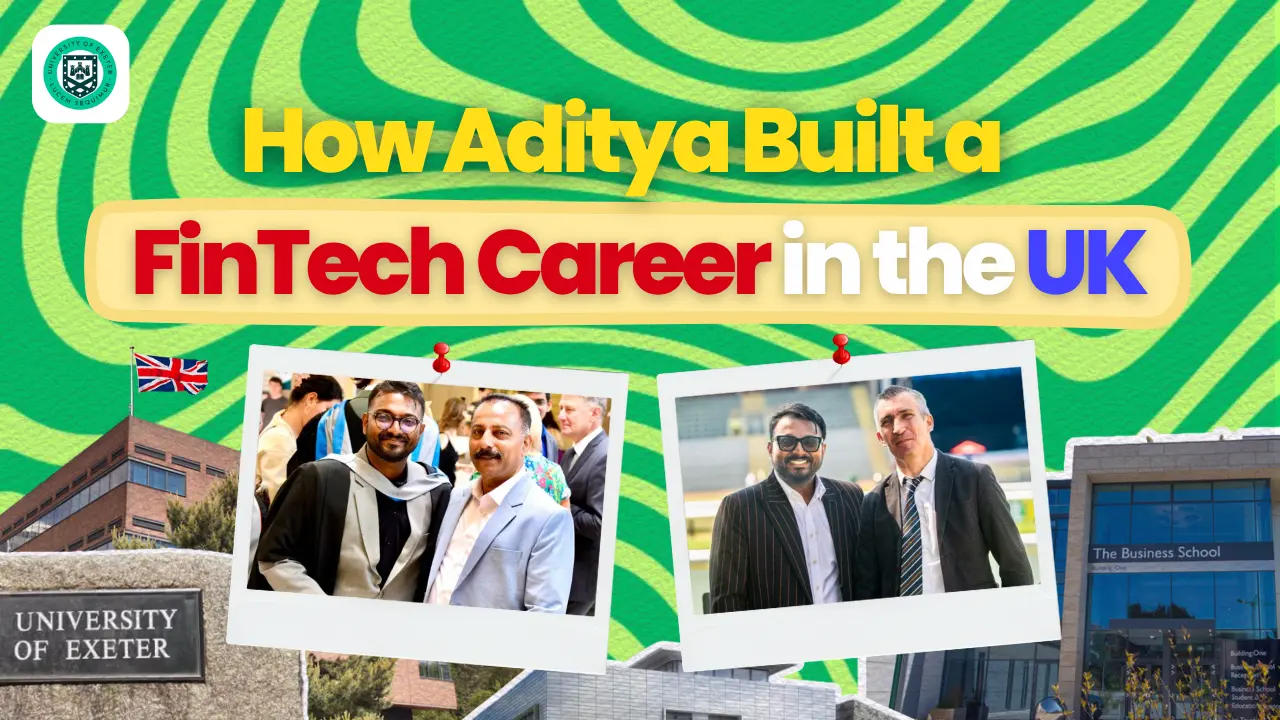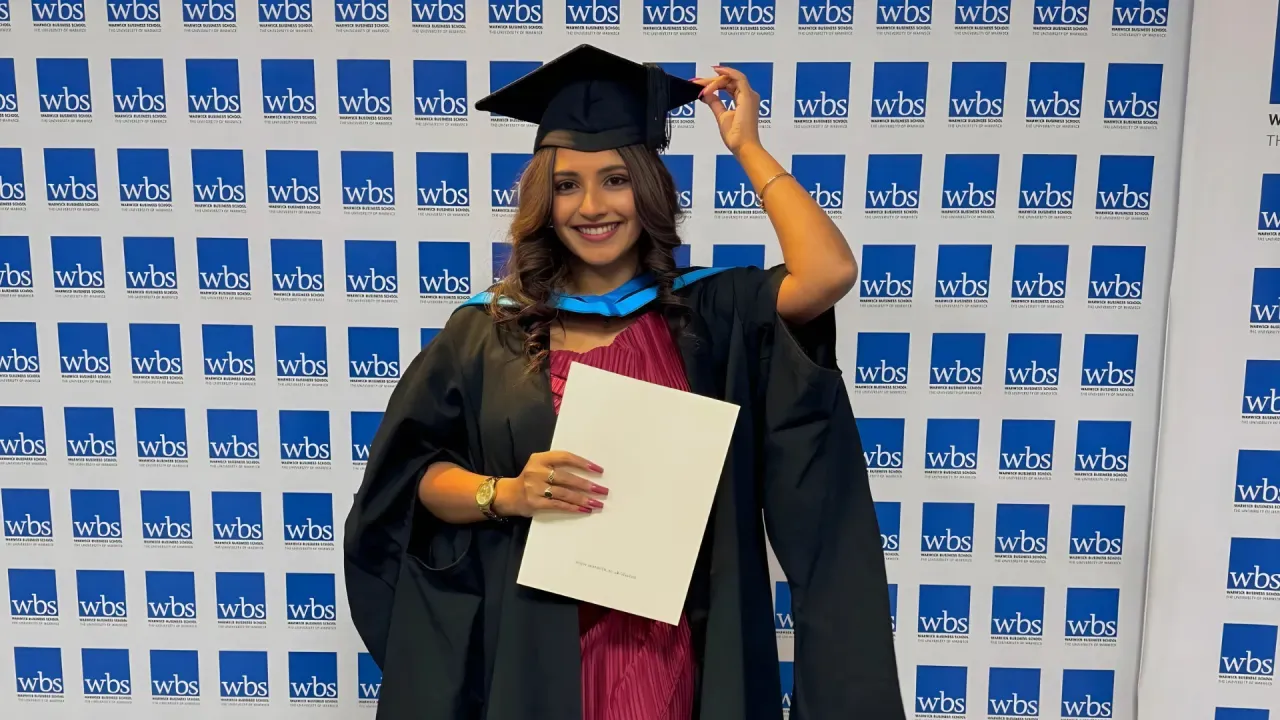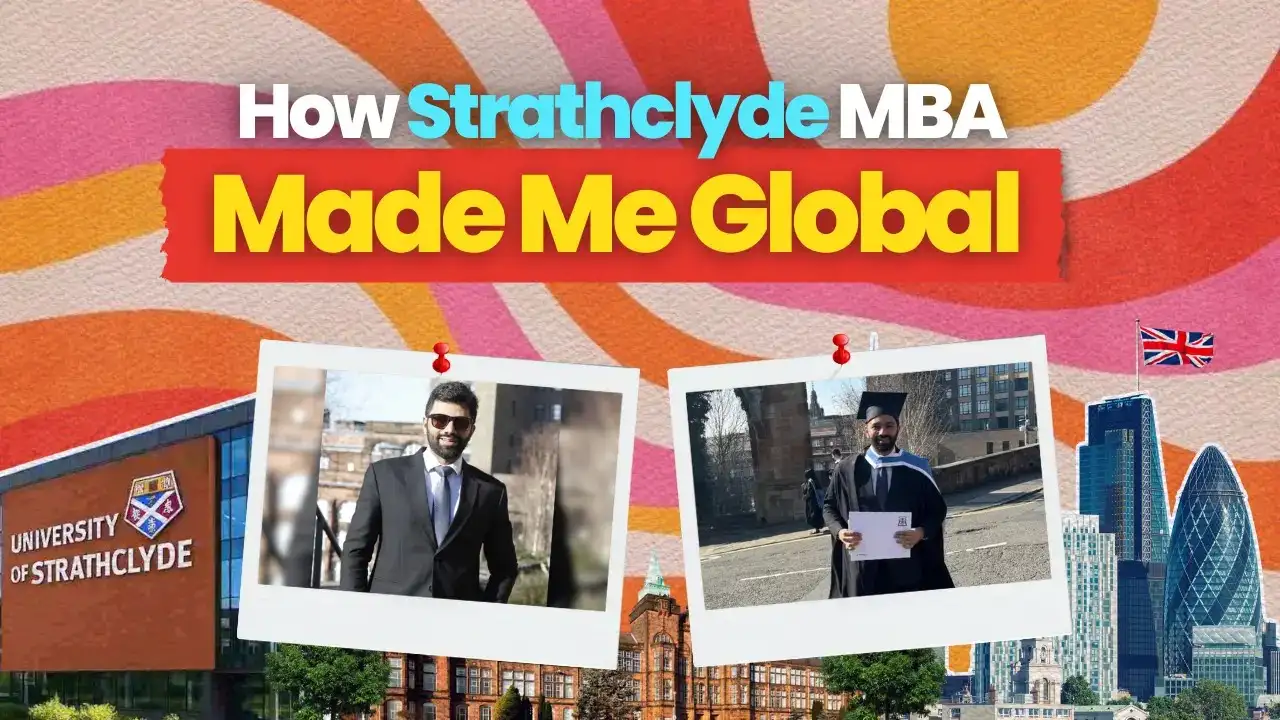Student Reviews
University of Exeter Graduate Aditya Sanal Kumar on His Journey from Mumbai to UK FinTech

Aditya Sanal Kumar sat down with Leap to share his study abroad journey and how the University of Exeter shaped his career path. He holds a Master’s degree in Financial Technology from the University of Exeter and an M.Com in Accounting from the University of Mumbai . Today, he applies his expertise as a Regulatory Specialist at Weatherbys Private Bank.
Q. Tell us about your background.
I did all my schooling and college in Mumbai. I completed my B. Com there and pursued CA for a while, but I realized it wasn’t the right path for me. After completing my M.Com in Mumbai, I began my career at Deutsche Bank, where I worked for nearly four years.
During that time, I noticed the increasing role of automation in banking and finance. I felt that if I didn’t upskill, I might get left behind, so I decided to pursue a master’s abroad. I was exploring options such as Big Data Analytics and Data Analytics, but FinTech resonated most with me due to my background in banking. While studying at Exeter, I was determined to gain work experience in the UK. Following my parents’ advice that no work is beneath you, I took on part-time roles, from working in university catering halls to a warehouse. Eventually, I was fortunate to start my UK banking journey with Barclays as a Business Analyst III, primarily involving the servicing of premier banking clients. After about nine months, I moved to Santander as a Finance Analyst, directly reporting to senior management, a role I particularly enjoyed.
Q. How did you pick the UK and the University of Exeter? How was that process?
Honestly, it wasn’t very planned. It was all a bit rushed. I initially wanted to come for the September intake, but my dad had to undergo bypass surgery suddenly, so I postponed my plans. After my dad recovered, he encouraged me to pursue my dreams, so I started applying again.
Exeter stood out because its course offered more value compared to other universities, and I was specifically looking to pursue a degree in FinTech. Additionally, I knew it was highly ranked in the UK and globally and part of the Russell Group of universities. Moreover, living in Exeter was affordable as compared to London where living costs can be almost double.
My main aim was to learn new tools and languages, such as Python and R Studio. Although I’m not using them extensively now, it was great to gain hands-on experience. The modules at Exeter aligned perfectly with what I was looking for.
Q. Can you recall how your university life at Exeter was?
My time at Exeter was a mix of challenges, hard work, and learning. I lived far from campus, so my routine mostly revolved around lectures and shifts at work.
I worked at the Lidl warehouse, the university catering hall, and eventually at Barclays. Most jobs I found via Indeed, though Barclays came through sheer luck. I saw a notice outside the bank and called them. I believe part-time jobs are very accessible for Indian students, as long as you’re willing to work and stay persistent.
I often slept only 3–4 hours, but I learned the value of finishing tasks ahead of time, a habit I picked up at Deutsche Bank. My advice to students: come with some work experience if possible, be adaptable, and persevere. It’s overwhelming at first, but the experience is incredibly rewarding.
Q. How did you find your first job after graduation, and what was your strategy?
The key is to build a strong CV. It’s your marketing tool. A well-crafted CV gives you a 70–80% chance of being considered, while a poor one might get overlooked entirely. Once your CV is ready, apply through LinkedIn, company career sites, and occasionally Indeed, although Indeed is more suitable for part-time roles. I didn’t use the university portal much.
I also used Careers360 to check the quality of my CV, which really helped me refine it. My Master’s at Exeter was invaluable for gateway roles as a non-IT student coming from India.
For fresh graduates seeking employment, my advice is: don’t give up. People often get frustrated when tactics don’t work immediately. Learn from mistakes, understand why you get rejections, and improve your CV. Always try to match your resume keywords with the job description's key terms. And for interviews, don’t overprepare; just be yourself and stay confident.
Q. What’s your day-to-day life like now?
Now, I go to the office two days a week, sometimes just one. The work-life balance is much better than before. I usually work from 8–4 or 9–5, and then I’m home. It’s pretty chill compared to my 4 a.m. warehouse shifts. I do miss home sometimes, but this is the life we’ve chosen.
Q: You mentioned upskilling because of automation. Do you think AI will eventually take over the FinTech industry?
I don’t think AI will completely take over. It will never fully replace human intervention. Even in finance, full automation still leaves loopholes that require human oversight. Yes, the workforce might reduce, but AI won’t replace us entirely.
I do use AI tools at work, and they’re incredibly helpful, whether it’s writing code, automating reports, or creating macros. Tasks that used to take a long time can now be done in seconds just by asking AI. It definitely makes work more efficient.



